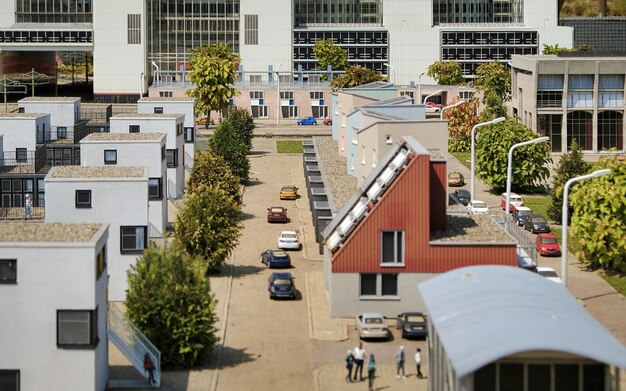Discover the Cleveland Metropolitan Housing Authority: Your Gateway to Affordable Living
Navigating the complex landscape of affordable housing often feels daunting. In Cleveland, Ohio, residents are fortunate enough to have the Cleveland Metropolitan Housing Authority (CMHA) at their service. CMHA is dedicated to providing affordable and quality housing solutions for low- and moderate-income individuals and families. This article explores how CMHA serves the community and transitions to broader financial assistance options that further support residents in need.
Understanding CMHA's Purpose
The Cleveland Metropolitan Housing Authority is a cornerstone for many residents aiming to secure affordable housing. Established to address housing needs, CMHA offers a variety of housing programs including public housing units and the Housing Choice Voucher Program (Section 8) which helps subsidize rental costs in privately-owned properties.
Key Benefits of CMHA Programs
- Access to Safe and Affordable Housing: CMHA ensures that all their properties meet safety standards, providing a secure environment for tenants.
- Rental Assistance: The Housing Choice Voucher Program allows eligible families to choose their own housing while receiving financial assistance to cover a portion of their rent.
- Community Development: Beyond housing, CMHA invests in developing strong communities by organizing social programs that enhance residents' quality of life.
Expanding Your Financial Aid Horizons
While housing assistance is a significant step towards financial stability, it is only part of the broader spectrum of aid available to citizens. Understanding the different avenues of financial assistance can empower individuals further.
Government Aid Programs
Government aid extends beyond housing, offering several programs that can alleviate economic burdens:
- Supplemental Nutrition Assistance Program (SNAP): Provides food-purchasing assistance.
- Temporary Assistance for Needy Families (TANF): Offers short-term financial help and job opportunities.
- Medicaid: Healthcare assistance for low-income families.
Financial Assistance and Debt Relief Options
For those seeking relief from escalating financial obligations, understanding the debt relief landscape is critical:
- Credit Counseling Services: Professional advice on managing debt and budgeting can transform your financial outlook.
- Debt Management Plans: These plans negotiate interest rates with creditors to reduce financial stress.
- Tax Relief Programs: Available for individuals facing overwhelming tax liabilities.
Unlocking Educational Opportunities
Educational advancement can redefine career prospects and financial well-being:
- Federal Pell Grants: Aid for undergraduate students without the obligation of repayment.
- State Educational Grants: Financial aid available at state level to support college aspirants.
- Vocational Training Programs: Designed for skill development, leading to better employability.
Embracing a Brighter Financial Future
The path to financial security is multifaceted. By leveraging resources like the Cleveland Metropolitan Housing Authority and expanding into various financial and educational aid programs, you pave the way for a more stable and promising future. Below is a quick guide for easy navigation through these opportunities:
🔑 Financial Assistance Programs
- 🏢 CMHA Housing Options: Affordable public housing and Section 8 vouchers.
- 🥦 SNAP: Supplemental nutrition assistance.
- 🏥 Medicaid: Healthcare coverage for eligible families.
💸 Debt Relief Solutions
- 📈 Credit Counseling: Expert budgeting advice.
- 📑 Debt Management Plans: Reduced interest rate negotiations.
- 💰 Tax Relief: Solutions for managing tax debts.
🎓 Educational Grants and Opportunities
- 🎓 Federal and State Grants: Educational funding for college students.
- 🔧 Vocational Training: Skill development for better career opportunities.
Exploring and utilizing these resources can ensure a more secure and prosperous tomorrow for you and your family. Engage with these programs today, and start building a path toward sustained financial wellness.

